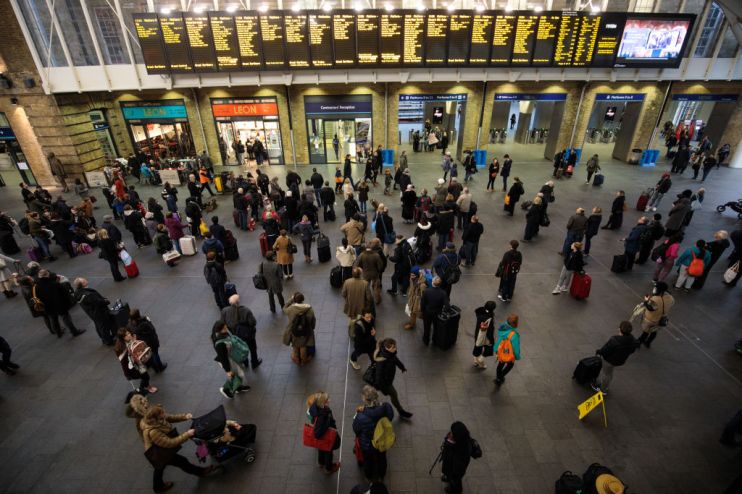Kick off the decade with a plan for ending the misery of the daily commute

It’s the start of the year, and you may have already had to suffer through a cancelled train, a packed carriage, or a traffic jam that’s cost you a meeting.
Not the best way to kick off a new decade.
Among those returning to their offices today are the newly appointed members of the government, with in-trays full of the promises made during the election campaign.
Having pledged nothing short of an “infrastructure revolution”, Boris Johnson’s government will be under pressure to act quickly. Indeed, we’ve already seen metro mayors and local leaders pushing their own “wish lists” of regional infrastructure, eager to address the poor connectivity that is currently leaving their areas behind.
Commuter experience is key to this. A CBI poll of 2,000 employees across the country found that they lost on average 2.7 hours a week owing to travel disruption and delays. Over the course of a working year, the average employee loses 125 hours, or over five whole days, thanks to commuting problems.
Improvements in how people get to work therefore have the potential to improve not only the UK’s productivity, but also our quality of life.
Clearly, more investment is needed, but simply turning on the spending taps is not sufficient. Businesses want the government to deliver certainty through a national infrastructure strategy and a Budget outlining how it will be funded.
This should be accompanied by a plan for a more accountable and transparent rail system, with greater alignment between those who own the tracks and those who run the trains; a focus on easing congestion on our roads and delivering seamless connectivity in our towns and cities; and a strategy to make transport systems greener and more affordable for all.
And if the UK is to move up the global infrastructure ranks, the new government must set a vision that attracts business to invest in the UK by seizing the opportunities from technological innovations around mobility and the transition to a net-zero economy.
Businesses know that they too have a part to play. While they may already recognise that expensive, stressful and unreliable commuting experiences take a toll on their staff, they could do more to make workers’ journeys easier and more productive. CBI research found that a mere 16 per cent of employees had been offered a flexible start time to avoid rush hour, and just 23 per cent could decide the hours they worked.
As work patterns change, the potential for flexible working is set to increase, bringing significant opportunities to better use existing infrastructure capacity and reduce emissions from transport.
To help the UK on this journey, over the next 18 months the CBI is working with KPMG to outline the type of investments in infrastructure that can tackle the UK’s productivity gap, and how government and business can work together to make the commute greener, more affordable, and more reliable.
This morning, as the newly appointed ministers make their own commute, businesses across the country want to quickly see the detail behind the grand pledges of the election campaign.
Meeting this challenge would not only start to address the UK’s long-standing productivity problem, but perhaps also build trust with those who “lent their vote” at the election, and will now be expecting a response.
Main image credit: Getty